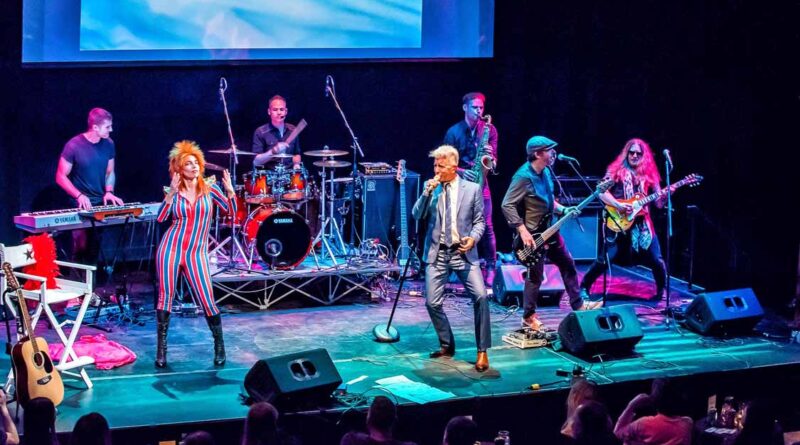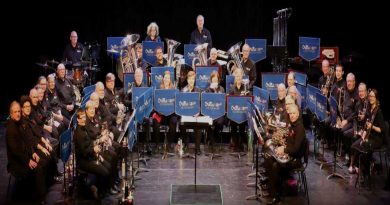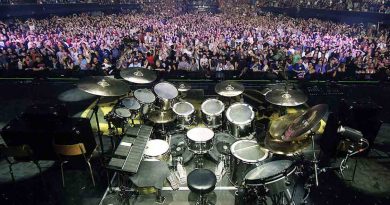David Bowie Tribute Show
By John Swartz
After more than two decades, almost three, interviewing musicians, one gets a sense of who is in it for the chicks, or in it for the fame and has gone Hollywood, who is in it for the money and who is in it because they love their craft, the music they play and the musicians they play with. Those things are readily apparent in conversation – and helpful when writing in advance of a performance one has not seen yet.
Speaking with Michael Bell, the front man and Michael Beauclerc, the drummer for The Bowie Lives, gives the impression one is talking with people who invested in being musicians for most of their lives, and in particular are invested with a heartfelt respect for the artist, David Bowie, who gives rise to the show happening at the Orillia Opera House September 24.
“There would be no other tribute I would do,” said Bell.
![]()


Bell is the publisher of the independent entertainment magazine The Wire. A professional musician for most of his life (he was in Eye Eye, which won the Q107 Homegrown contest in 1984), a Green Party candidate (federally Haliburton–Kawartha Lakes–Brock in 2008 and Peterborough in 2011), played in jazz bands, folk bands, rock bands, new wave and punk bands, and well, Bowie bands.
“For me it’s a full-time thing. I closed the paper. It’s just all about pushing this project forward,” Bell said.
Every musician has their heroes, acquired as teens, which shapes their musical tastes for life, and influences the music they learn to play. Bowie was never the same way twice with his music or how he presented himself. Bowie was an artist in every sense of the word, from creating paintings to how he dressed onstage and off. Bell embraced the Glam era and became a lifelong fashionista and a singer of the kind who could do Sinatra, Bennett, or shout at the moon as some pop and rock musicians do.
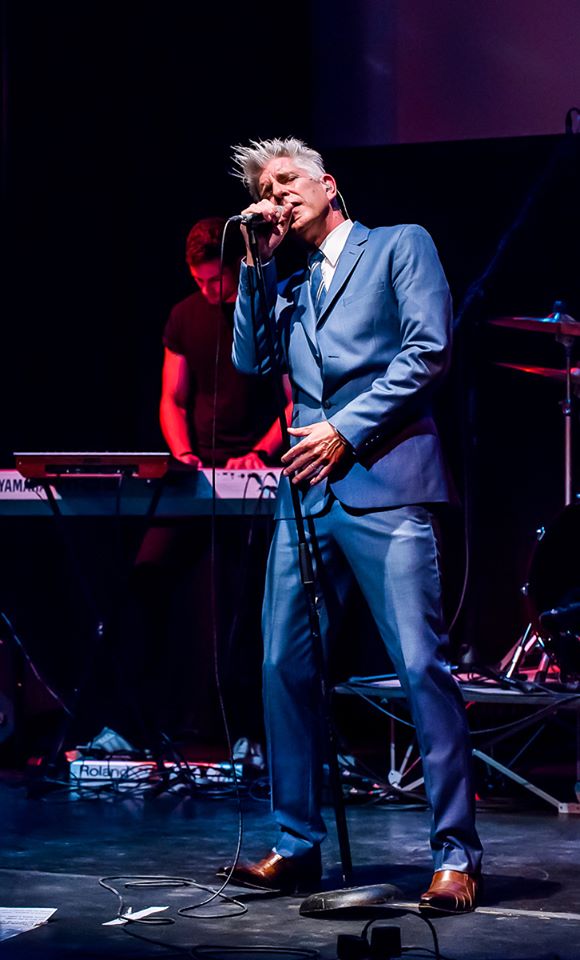
“(It’s) easy for me because I’m so influenced by him as a young guy and it shaped my life and approach to things, based on things I learned as a teenager and a young adult following his career,” Bell said.
When Bell performed his own music, people would often tell him there was a resemblance with Bowie’s performance qualities.
“Michael (Beauclerc), he was on to me for years about putting a Bowie thing together, even before Bowie passed. I always said no. Even when he did pass it took 8 months or 10 months of him convincing me. I finally said if you put a band together, I’ll come out and sing at a rehearsal and if I like it maybe we can talk. He put such an incredible band together right out of the gate I thought, “this is fun, OK,”” said Bell.
“I didn’t want to seem opportunistic; he (Bowie) meant way more to me than getting on stage to be him. Keeping his legacy alive and educating and exposing people to his art and his music, maybe for the first time in some cases, that’s a good thing for me to do. It’s a personal passion. I think that’s kind of the difference between myself and other guys who are fronting shows,” said Bell.
Most of the tribute bands that travel through here aren’t of interest. Very few of them are composed of players blessed with performers dedicated to the twist of the name on a marquee. They can’t all have band members like say, Classic Lightfoot Live has, which comes with a singer whose voice is a dead ringer, a guitarist who learned to play from Red Shea, and a nephew who grew up around Gord. They also don’t often have a bandleader like Ken Brennan of Dogs of War who knows more about Pink Floyd and the music than maybe even Pink Floyd does. In both cases those people wouldn’t dream of attempting to perform an entire show of their hero’s music if they thought they’d tarnish the image.
Michael Bell is of that group. Having a tribute band isn’t something you should do just because you lined up some gigs.
“Somebody who maybe came out just because it was time to do a tribute and left an Elton John tribute, or a Bon Jovi tribute to do a David Bowie tribute, they might have more of a challenge given they might not understand the nuances of the music and the various genres of music he covered. Also the notion of his fashion; for me I kind of walked the walk with the guy. When I was a young guy I dressed crazy glam and for the rest of my life I remained visually outstanding in terms of wardrobe and hair styles and things of that nature,” said Bell.
“Definitely one of the hardest parts of being a David Bowie tribute band would be putting a band together capable of playing all this stuff. I would turn (it) over to Michael Beauclerc to describe the challenges we faced in the earliest days and continuously in finding capable players,” said Bell
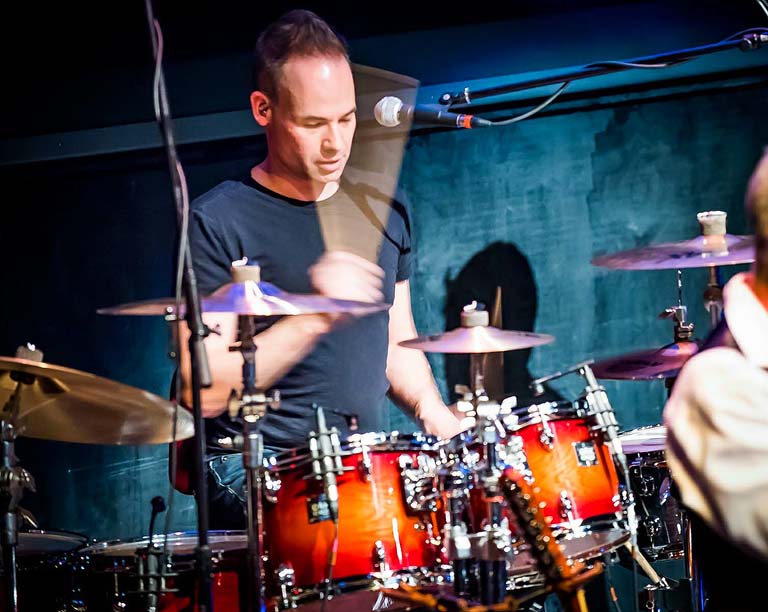
“Michael (Bell) and I were playing jazz shows together for 15 years before we started the Bowie. I was joking with Michael on the way home from a show one night, because he looks and sounds like just like David Bowie maybe we should do a whole set of David Bowie songs, but swing them with the big band. Michael thought that was funny, but he didn’t think that was something we would try doing. We didn’t do that. Then Bowie literally passed about a month after we had that conversation,” said Beauclerc, who is the music director of the show. With Bell he crafted a show, which has a lot more to it than just picking a bunch of tunes. Like a song, there’s a beginning, middle and an end, which with good shows takes the audience on a journey.
“Finding musicians was a little tricky at first. The guitar player (Jason White) was the first guy we reached out to. I have been in many other ensembles with him. He can literally play anything. He was a Death Metal guitar player, he did Disney cruise ships; the first time I played with him was doing Wes Montgomery jazz. He’s a monster,” said Beauclerc.
“He was an easy call and he was on board right away. Jason, Michael and I have done every show together. The rest of the band has evolved. When you are trying to get musicians of that calibre, they’re busy with other ensembles too. We have many different keyboard players on our list, many different bass players on our list, saxophone players (too).”
“And we had in the early stage, (we had) Chuck Daily from I Mother Earth playing bass, and Sandor Schwisberg (keyboards) who ended up on tour with Tony Orlando. Like Michael says, once you get guys at that level, if you don’t book them eight months out – and even then, if they get a better offer to tour Europe for three months, they’re going to take it and dump my show. There’s no honour among thieves, or musicians, really,” laughed Bell.
Bell has also been approached by musicians wanting to play in the band. Tony Springer (who recorded with Bowie and has played in Orillia many times) is one and others have been in the Bowie orbit when he toured in Canada, but Bell says that was after he set his band and backup players.
Beauclerc also had a hand in how the show looks.
“One of the things we wanted to do right away was establish what are we doing with costuming. Is Michael going to wear all the different costumes, or is he going to wear the iconic blue suit? We went down the road of the suit and we started hiring dancers and singers and actors to wear those costumes for us. So, we have people come out in a Ziggy costume and an Annie Lennox costume and sing the Under Pressure version with Annie Lennox. That way we are covering that side of the art, the visual side. We have multi-media happening behind us while we’re performing. We try to add the theatrics, the visual, the fashion, all those different aspects in as much as we can, as opposed to just standing there playing the songs,” said Beauclerc.
“And you wouldn’t want to see me in a Ziggy jumpsuit anyway,” added Bell.
Connections
One of the reasons Beauclerc was asked for to be included in the conversation for this story is because he shares a common background with this writer. Both of us were members of the Oakland Crusaders Drum Corps, though 20 years apart, and it was felt there was some worth exploring how that affected his professional career behind the drums in this band.
“I started doing drumline because my dad was a rock and country drummer. I learned from him and I was substituting for him in his bands, but it got to a point where he didn’t really have much more to offer me education wise and we couldn’t afford drum lessons, so I joined Drum Corps so I could learn all those rudiments and made a great career out of that, but that was never my intention. My intention was always to play the drum set.”
His rudimental drumming career spanned 7 years in Drum Corps and indoor competitive drumlines. That lead him to being a Yamaha artist touring Canada giving drumset and drumline clinics and educator conferences. He is also a Vic Firth, Remo and Sabian artist. So how does the training and playing experience affect playing in the band now?
“Funny enough, for my snare I switched to a new head and it’s actually the Powerstroke 77, which (is the same drumhead as) you may have marched on. It sounds incredible on my rock snare drum. The drum just barks, I don’t have to hit it as hard. It’s actually lowered my stage volume. It’s really helping my vocals,” said Beauclerc. The technical musical training directly translates to playing in a rock band too.
“It translates well. I think the consistency (of playing) is a big thing. Where it helps me in this show is I’m using two snare drums, but if I was to be wacky about it I would need ten snare drums for the show. I can’t hit it the same way (for each song), some songs need to be rim shot, some don’t and I have to be consistent with that the whole time. And then to be able to sing on top of it I need to put my limbs on autopilot and then sing, so that consistency and the repetition of marching and all those years of drumline have a huge effect on my consistency as a drum set player,” Beauclerc said. Oh yeah, he trained as a singer too. It’s not unusual for the drummer to be the music director for a show, but not common. Again, immersion as a member of a touring Drum Corps helped.
“As a music director it’s my job to find people who are able to play the parts. There’s personal skills too; we all need to be able to get along. It’s really finding the people who are able to execute the material. The people need to have a diverse back catalogue coming into the project, that they’re comfortable playing a blues song from the 70s and an Industrial, 90s, hard rock song because those are all happening in this show.”
“We’re looking for as little errors as possible and that’s a big Drum Corps thing, and people who have great memorization skills, again a big Drum Corps thing. Even if you are brand new, you’re walking on stage for the first time, here’s our 28 songs, go,” said Beauclerc.
What Is It About Bowie?
There’s a certain type of musician everybody regards with reverence. Buddy, Pastorius, Jackson, Sinatra, they all had something others didn’t. Sure some could play as well at times, but there is an artistry which elevates people like that. Bowie was one of those. He was the renaissance man of the latter half of the 20th Century; reinventing himself before it became fashionable (Madonna), changing the kind of music he made almost each time out with a new record, wearing the latest clothing designs, short hair, long hair, change the colour. He wasn’t your typical rock star, he was urbane, an actor of note, a business pioneer, and some may recall an early internet pioneer – not just by creating a website, but an ISP (Bowienet) just like AOL.
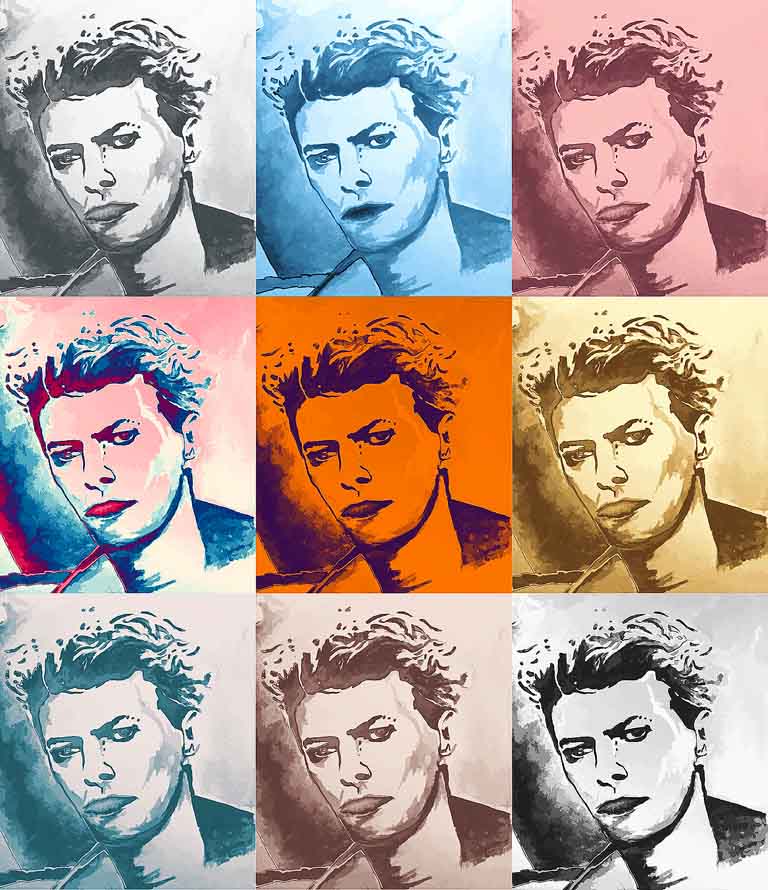
Bell points out, many of the things Bowie got himself into weren’t his own creations, Bowie did not invent the internet, or come up with selling bonds in the financial world, his strength lay in recognizing the new things others came up with and adapting or adopting. That extended to the music.
“I would suggest its more about finding musicians and creators and producers throughout his career that excite him and were on the breaking edge. You look at something like Earthling and think, wow, I’m Afraid of Americans (which is on the set list), this is so not Bowie. It’s such a heavy industrial sound. And then you realize it’s because he’s working with Nine Inch Nails and Trent Reznor. They kind of helped shape his sound,” said Bell.
“When you get back into the albums like Scary Monsters, or the Berlin Trilogy, all those were shaped by the players – Brian Eno, Robert Fripp, Adrian Belew. Those guys brought their style to the music. One of the great takeaways for me was, find good players, creative people; it doesn’t matter what discipline you are in, find creative, smart people and let them do their thing and then harness what they’ve got going on and put yourself into the mix. I think that’s more about what Bowie was up to,” said Bell.
“It’s about following your own path.”
“When you look at the romantic period of the 80s with bands like Spandau Ballet, or the punk movement, all these things, visually came out of his positioning of now I’m Ziggy, now I’m the Thin White Duke, now I’m the Jean Genie, now I’m the Earthling now I’m the Labyrinth – and the art as well, to capture some of the most avant-garde art of the day and incorporate it into his show. It’s great inspiration for average folks, and for artists who come out maybe you become inspired again and think it’s OK to perform all kinds of different music and be a true renaissance person. That’s something I want, and to evoke the memory of one of the greatest artists of our time.”
“He was the first artist to leverage and sell debt on his back catalogue. Every corporation in America was doing it at the time, it just never occurred to anybody in the music business to do that. Now everybody does it. He was the first artist to truly embrace the internet in a real way. He was a trailblazer, but again, following some other pioneers that have already established something and he took advantage of it and molded it into his shape,” said Bell.
These are the things that draw admiration from so many people for the diversity of Bowie’s lifetime body of work and not merely being fans of one or two songs. He was a giant and his loss in 2016 was devastating to so many who recognized a person like Bowie only comes along once in a lifetime and affects one’s own perspective on art and life.
![]()

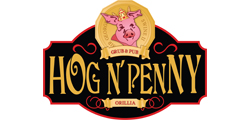

![]()
What To Expect
The show is performed in chronological order with 28 songs on the set list.
“It’s a lot to do with the audience age. We sit in the 70s and the 80s the most because that’s where the material they know. The other stuff they won’t recognize at all. Sometimes you’ll get young people coming up when we do Man Who Sold The World and people think it’s a Nirvana tune.”
“We close with Lazarus (from Bowie’s last album, Blackstar). It’s a bit of a somber, tear jerk moment, but that’s how we end. And then we do an encore, which brings the audience back up. We start at the beginning and we end at the end,” said Bell. He would not say what the encore tune will be.
“I imagine you wouldn’t be able to guess it either, but you’d know it. You’ll say, “Oh my god, that’s the perfect closer.” Think outside the box,” he said.
The show will open with a short set featuring some people you may know.
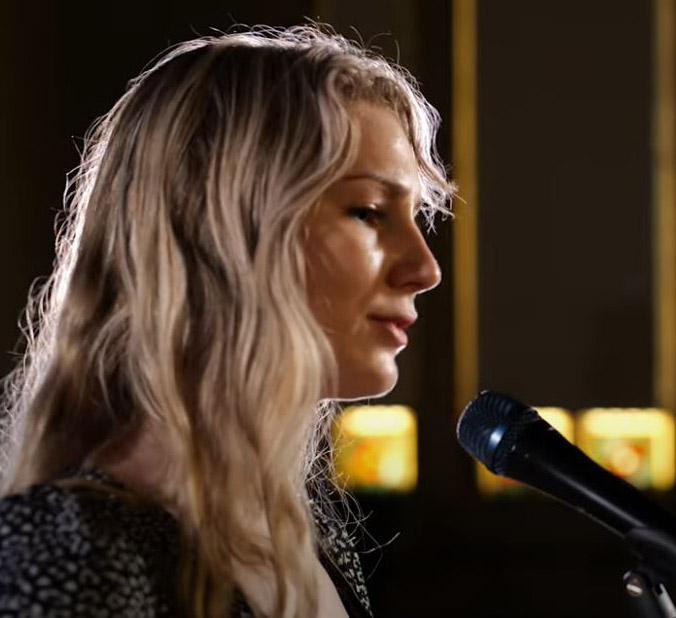
Sam Johnston 
Madison Mueller
“One thing we do at all our shows is find local musicians to come and open up the show for us. We invite them to learn, or play their favourite Bowie songs. In the case of the Orillia show we have Sam Johnston and Madison Mueller. It’s all about making it a happening and getting the community involved,”
There will also be licensed memorabilia on sale in what they call The Bowie Bazaar in the lobby.
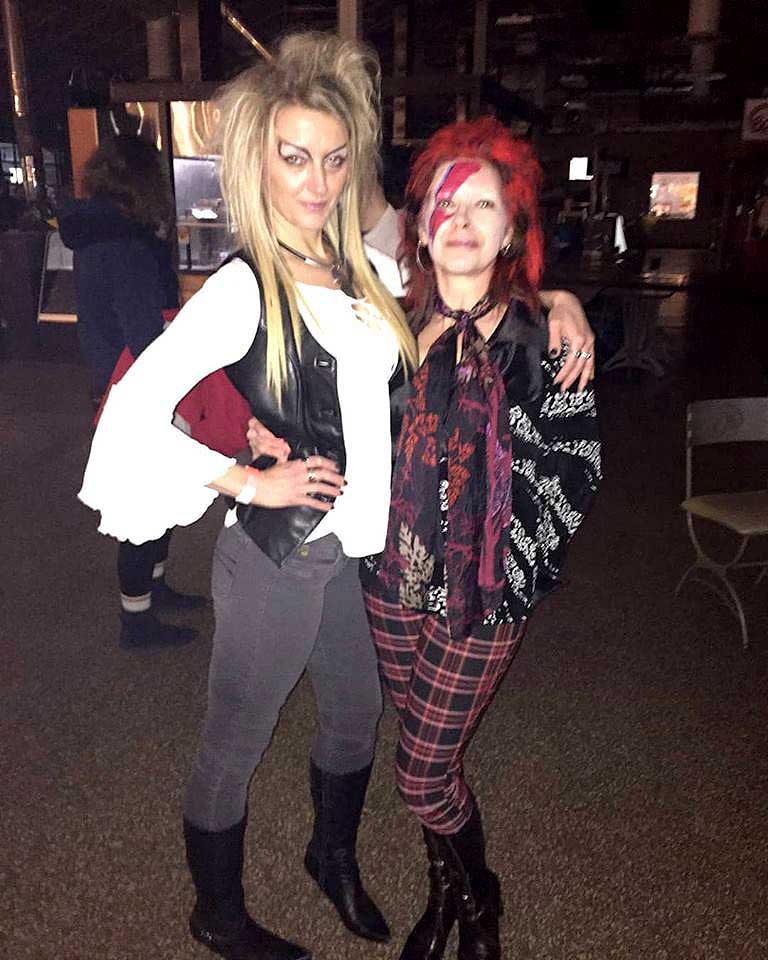
“The other thing we really like to try to promote at shows is other folks showing up dressed as their favourite Bowie. We’ve had people show up in the full blown Labyrinth costumes, Ziggy, lots of Thin White Dukes. We often offer face painting in the lobby before the show so you can get your Lightning Bolt done,” said Bell. Whether face painting happens here depends on if Bell can find a suitable person to fill in for his regular face painter who can’t make this gig.
“I’d like to see someone come dressed as Iggy Pop too. That would be really fantastic. If somebody has got a great costume on and the venue allows for it, we’ll get them on stage. It’s more of a happening than just a band coming out to play a bunch of songs and stand at the microphone,” said Bell.
“Lots of folks, you’ll meet them out in the lobby and they’ll say, “I had no Idea I knew all those songs – I knew them all, but I didn’t know they were all him,”” said Bell.
Tickets are available online and you can check out the Youtube channel for a taste of how the band sounds.
UPDATE: copy has changed to reflect Bell still publishes The Wire online.
(Images Supplied) Main: The Bowie Lives (Photo by Gareth Skipp)
Rants & Raves

